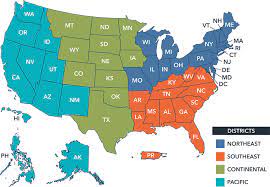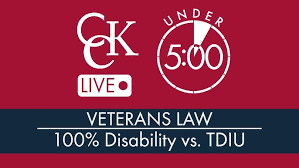The Role of the VA Administration in Supporting Veterans
For many veterans in the United States, the Department of Veterans Affairs (VA) plays a crucial role in providing essential services and support. The VA Administration is responsible for overseeing a wide range of programs and benefits designed to help veterans access healthcare, education, housing assistance, disability compensation, and more.
One of the key functions of the VA Administration is to manage and operate a nationwide network of healthcare facilities that provide medical services to eligible veterans. These facilities offer a variety of medical treatments, including primary care, mental health services, specialized care for conditions related to military service, and rehabilitation services.
In addition to healthcare services, the VA Administration also administers education benefits for veterans, including the GI Bill program which helps eligible veterans pay for college tuition and expenses. The VA also provides housing assistance programs to help homeless veterans find stable housing and support services.
Another important role of the VA Administration is to process disability compensation claims for veterans who have service-connected disabilities. This process involves evaluating medical evidence provided by the veteran and determining the level of disability compensation they are entitled to receive.
Overall, the VA Administration plays a critical role in supporting veterans by ensuring they have access to essential services and benefits. Through its various programs and initiatives, the VA works to honor the sacrifices made by our nation’s veterans and help them lead fulfilling lives after their military service.
8 Essential Tips for Effective Veterans Affairs Administration: Enhancing Support and Efficiency
- Ensure accurate and timely record-keeping of VA benefits and claims.
- Stay informed about changes in VA policies, procedures, and regulations.
- Provide clear and detailed documentation when submitting VA claims or appeals.
- Assist veterans in understanding their rights, benefits, and responsibilities under the VA system.
- Advocate for veterans to receive the appropriate level of care and support from the VA.
- Maintain confidentiality and respect when handling sensitive information related to veterans’ cases.
- Collaborate with other professionals within the VA system to ensure holistic care for veterans.
- Continuously seek professional development opportunities to enhance knowledge and skills in VA administration.
Ensure accurate and timely record-keeping of VA benefits and claims.
It is crucial to maintain accurate and timely record-keeping of VA benefits and claims to ensure that veterans receive the support they deserve. Keeping detailed records of benefits received, claims filed, and any changes in status can help prevent delays or discrepancies in processing applications. By staying organized and up-to-date with documentation, veterans can better navigate the VA system and access the services they are entitled to efficiently. This proactive approach can lead to smoother communication with the VA Administration and ultimately result in a more streamlined process for receiving benefits and assistance.
Stay informed about changes in VA policies, procedures, and regulations.
It is crucial for veterans to stay informed about changes in VA policies, procedures, and regulations to ensure they are aware of any updates that may impact their benefits and services. By staying informed, veterans can proactively navigate the system, understand their eligibility for different programs, and take advantage of new opportunities that may arise. Keeping up-to-date with VA policies helps veterans make informed decisions about their healthcare, education benefits, disability compensation, and other services provided by the VA Administration.
Provide clear and detailed documentation when submitting VA claims or appeals.
When submitting VA claims or appeals, it is crucial to provide clear and detailed documentation to support your case. Clear and detailed documentation helps the VA Administration understand the nature of your claim or appeal, ensuring that all relevant information is considered in the decision-making process. By providing thorough documentation, you increase the likelihood of a successful outcome and expedite the review process. Remember, accuracy and completeness are key when submitting VA claims or appeals to ensure that your case is properly evaluated and resolved in a timely manner.
Assist veterans in understanding their rights, benefits, and responsibilities under the VA system.
It is essential for the VA Administration to assist veterans in understanding their rights, benefits, and responsibilities under the VA system. By providing clear and accessible information, veterans can make informed decisions about the services available to them and how to access them. Ensuring that veterans are aware of their entitlements helps them navigate the system more effectively and empowers them to advocate for themselves in receiving the support they deserve. This proactive approach by the VA Administration promotes transparency, accountability, and ultimately enhances the overall well-being of our nation’s veterans.
Advocate for veterans to receive the appropriate level of care and support from the VA.
It is crucial to advocate for veterans to receive the appropriate level of care and support from the VA Administration. Veterans have sacrificed so much for our country, and it is essential that they receive the quality healthcare, benefits, and assistance they deserve. By advocating on behalf of veterans, we can ensure that they are able to access the services they need to lead healthy and fulfilling lives after their service. It is our responsibility to stand up for those who have served and make sure they receive the care and support they are entitled to from the VA.
Maintain confidentiality and respect when handling sensitive information related to veterans’ cases.
It is crucial for individuals working within the VA Administration to prioritize maintaining confidentiality and respect when handling sensitive information related to veterans’ cases. Respecting the privacy of veterans and their personal information is essential in building trust and ensuring the integrity of the services provided. By upholding strict confidentiality standards, VA personnel can demonstrate their commitment to protecting veterans’ privacy rights and fostering a supportive environment where veterans feel comfortable seeking assistance without fear of their personal information being compromised.
Collaborate with other professionals within the VA system to ensure holistic care for veterans.
Collaborating with other professionals within the VA system is essential to ensuring holistic care for veterans. By working together, healthcare providers, social workers, mental health professionals, and other experts can coordinate their efforts to address the diverse needs of veterans comprehensively. This collaborative approach helps in providing integrated care that considers not just physical health but also mental well-being, social support, and overall quality of life for veterans. Through teamwork and shared expertise, the VA system can deliver more effective and personalized care that supports veterans in achieving optimal health outcomes.
Continuously seek professional development opportunities to enhance knowledge and skills in VA administration.
Continuously seeking professional development opportunities is crucial for enhancing knowledge and skills in VA administration. By staying updated on the latest trends, regulations, and best practices in the field, professionals can better serve veterans and ensure they receive the support they deserve. Professional development can provide valuable insights, tools, and techniques to improve efficiency, effectiveness, and overall service delivery within the VA Administration. Embracing ongoing learning opportunities not only benefits individual professionals but also contributes to a higher standard of care and support for our nation’s veterans.



